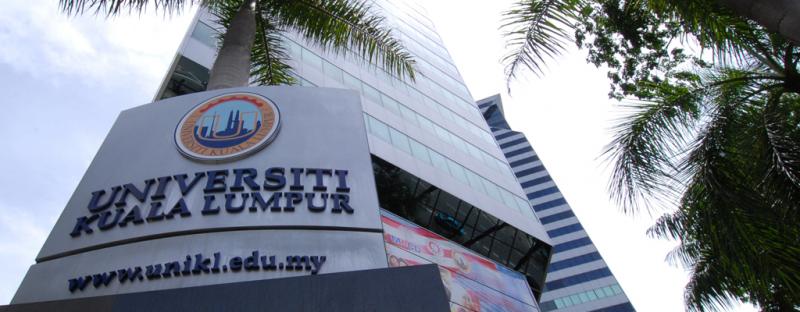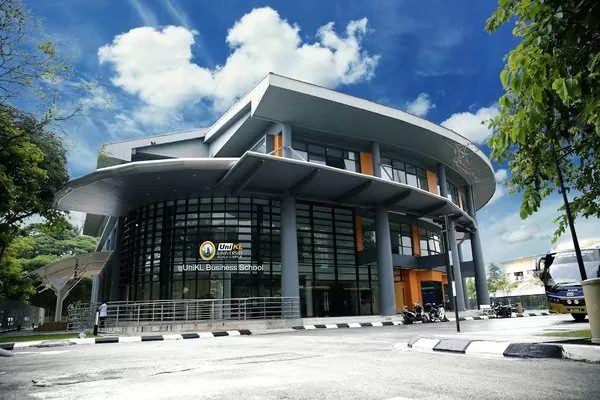Overview
This new MSc programme incorporates the first-time innovation management in the food processing curricula. The purpose of the MSc Programme in Food Processing and Innovation is to educate aspiring food entrepreneurs, government officials, and food industry professionals in the end-to-end value chain of food processing – from understanding the elements of food to starting a new venture for disrupting and enriching the food processing industry in Asia.
This programme is aimed at graduates and professionals looking to build careers in the food processing industry. The course builds knowledge and understanding of how ingredients are developed and launched, from concept to completion. It is based on the expertise of staff working in areas including food processing, business development, packaging, food safety, legislation, and sustainability. Students also have the opportunity to undergo industrial projects at selected companies.
The Malaysian Food and Beverages (F&B) Industry is a fast-growing market which is known as one of the main contributors to the national account with revenues of around €22.12 billion in 2018, growing annually at a rate of 7.6%. The sector recorded an export value of €3.98 billion to over 200 countries and an import value of around €4.10 billion in 2018. There are over 8,000 establishments in Malaysia, mostly Small and Medium Enterprises. Majority of the processed food of exports is edible products and preparations, cocoa and cocoa preparations, prepared cereals & flour preparations, margarine and shortening and dairy products (final products) (Food and Beverages Industry Report, 2020).
Demand for the food manufacturing industry is parallel with the development of the nation as more diverse areas are explored, particularly during the tiring pandemic period. Therefore, the possibilities of careers are very wide. The industry is becoming more complex and sophisticated, and this means organizations are looking for better trained people in many employment situations with relevant industry knowledge and all-round capabilities.
Programme Educational Objectives (PEOs)
- PEO 1
Knowledgeable, competent, and innovative which will contribute toward the requirements of the human capital in food processing related industry. - PEO 2
Effective leaders with teamwork skills as well as verbal and non-verbal interpersonal communication skills. - PEO 3
Committed towards the importance of lifelong learning and continuous improvement. - PEO 4
Professional, ethical and socially responsible. - PEO 5
Capable of embarking on business and technopreneurial activities.
Programme Learning Outcomes (PLOs)
- PLO 1
Demonstrate in-depth and frontier knowledge and understanding in the field of food processing and innovation. - PLO 2
Critically and creatively apply knowledge in one or more fields to resolve complex disciplinary and practical problems. - PLO 3
Conduct credible problem solving or investigation to resolve complex issues and questions in the field of food processing and innovation. - PLO 4
Conduct research or investigation with minimal supervision adhering to legal, ethical, professional, and sustainable practice. - PLO 5
Demonstrate leadership qualities through collaboration with peers and others. - PLO 6
Communicate and interact effectively with peers in the field of food processing and innovation as well as general audience. - PLO 7
Select and use suitable digital and analytical tool techniques to resolve problems. - PLO 8
Demonstrate commitment to lifelong learning and personal development.
Career Path
- Food Technologist
- Quality Management System Executive / Manager
- Project Manager
- Project planner
- Consultant
- Researcher
- Science officer
- Halal Executive
- Technopreneur
Admission
Entry Requirement
- A Bachelor’s Degree in Food Science/Food Technology/Food Engineering/Food Processing/Food Safety/Food Quality/Chemical Engineering Technology or related fields with a minimum Cumulative Grade Point Average (CGPA) of 2.50 or equivalent, as approved by UniKL Senate; or
- A Bachelor’s Degree in Food Science/Food Technology/Food Engineering/Food Processing/Food Safety/Food Quality/Chemical Engineering Technology or related fields or equivalent with a minimum CGPA of 2.00 and not meeting a CGPA of 2.50, can be accepted subject to rigorous internal assessment.
- Candidates without a qualification in the related fields or working experience in the relevant fields must undergo appropriate prerequisite courses determined by the UniKL and meet the minimum CGPA based on (i) to (ii).
All international students who wish to enroll into UniKL programme must meet the requirements of competence in English Language as specified in Malaysian Qualifications Agency (MQA) Programme Standard, except:
i. International students who come from a country that uses English as first Language; or
ii. International students who use qualifications from institutions that use English as a medium of instruction in full; or
UniKL shall recruit international students with conditional offer if the programme entry requirements or the Programme Standards are met except English Language.
Recruitment of international students under conditional offer will have to comply with the following conditions:
i. International students are allowed to attend an internal English preparatory course at UniKL for a maximum period of two years; and
ii. International student who attend an internal English preparatory course at UniKL need to sit for Malaysian University English Test (MUET) or any examination that is equal to The Common European Framework of Reference (CEFR) in order meet the English Language competency.
In the absent of English Language competency in the respective Programme Standards, UniKL Senate/Boards of Academic agreed the requirements shall be as below:
For Bachelor and Postgraduate programmes, the English Language requirements is International English Language Testing System (/ELTS) 5.0 or equivalent.
Career Path
- Food Technologist
- Quality Management System Executive / Manager
- Project Manager
- Project planner
- Consultant
- Researcher
- Science officer
- Halal Executive
- Technopreneur
Tuitions Fees
Malaysian Students: Full Time – RM24,020 Part Time – RM 24,620
International Students : Full Time – RM 35,340
Programme Structures














